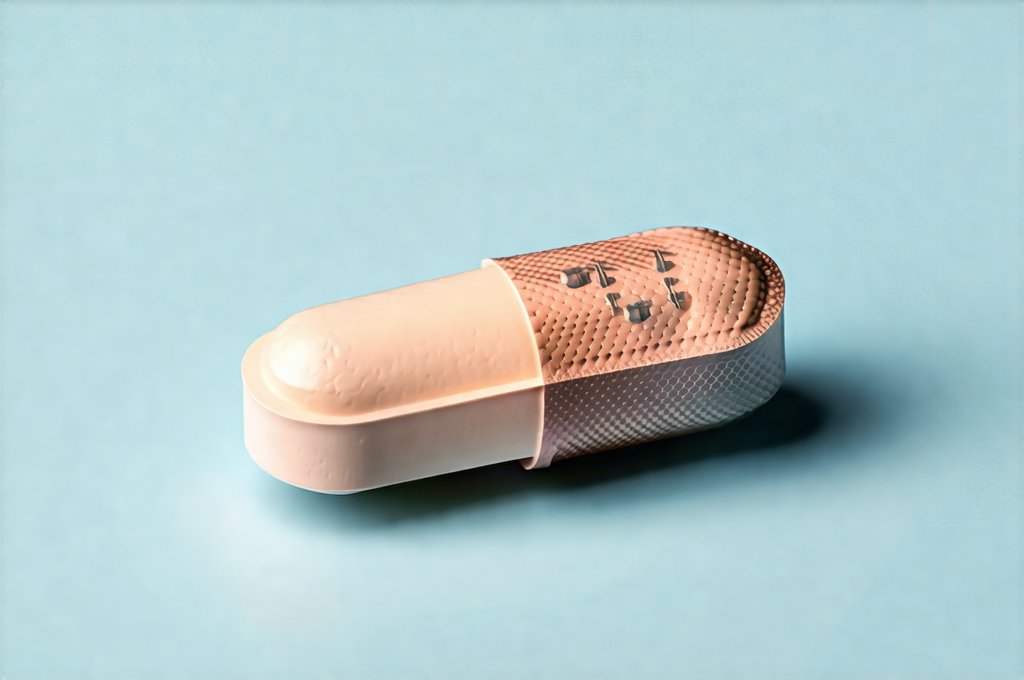Cystitis, a common urinary tract infection (UTI), can be incredibly disruptive, causing pain, discomfort, and frequent urination. For many women, managing this condition is complex enough, but it becomes even more challenging when combined with hormonal birth control. Birth control pills significantly alter estrogen levels, which play a crucial role in the vaginal microbiome – the delicate balance of bacteria that protects against infections. This interplay between hormonal contraception and UTI susceptibility often leads to increased frustration and difficulty finding effective management strategies. Understanding this connection is vital for women who experience recurrent cystitis while on birth control, allowing them to make informed decisions about their health and treatment options.
The core issue isn’t necessarily caused by the pill itself, but rather a disruption of natural defenses. The estrogen fluctuations associated with hormonal contraception can impact the vaginal flora, reducing lactobacilli – the “good” bacteria that help prevent harmful pathogens from colonizing the urinary tract. This creates an environment where E. coli, the most common culprit in UTIs, can more easily ascend and cause infection. Furthermore, some women experience changes in their bladder function or immune response due to hormonal shifts, potentially increasing their vulnerability. It’s important to note that not all women on birth control will experience these issues; individual responses vary greatly. This article aims to explore the relationship between cystitis and hormonal contraception, offering insights into management strategies and empowering women to advocate for their health needs.
The Impact of Hormonal Birth Control on UTI Risk
Hormonal birth control methods, including pills, patches, rings, and injections, all influence estrogen levels in the body. While these methods are highly effective at preventing pregnancy, they can also have unintended consequences on vaginal health. Estrogen is key to maintaining a healthy vaginal microbiome, stimulating the production of glycogen – a sugar that lactobacilli feed on. When estrogen levels fluctuate or decrease (as can happen with certain birth control formulations), the population of beneficial bacteria diminishes, leaving the door open for opportunistic pathogens like E. coli. This isn’t simply about bacterial imbalance; it’s also about the urinary tract’s natural defenses being compromised.
The specific type of progestin in a birth control pill might also play a role, though research is still ongoing. Some progestins have anti-estrogenic effects, further reducing overall estrogen levels and potentially exacerbating vaginal dryness and susceptibility to infection. It’s crucial to remember that correlation doesn’t equal causation; many factors contribute to UTI risk beyond hormonal contraception. These include sexual activity, hygiene practices, underlying health conditions (like diabetes), and individual predisposition. However, recognizing the potential impact of birth control is a vital first step towards proactive management. Finally, it’s worth mentioning that switching between different types of hormonal contraception can also temporarily disrupt the vaginal microbiome as your body adjusts to new hormone levels. This period of change might increase UTI susceptibility for some women, highlighting the importance of paying close attention to symptoms and seeking prompt medical attention if needed. If you are concerned about a link between birth control use and UTIs, learning more about can utis be linked to birth control can provide valuable insights.
Managing Cystitis Symptoms While on Birth Control
When cystitis occurs while on birth control, a multi-faceted approach is often most effective. First and foremost, promptly address the infection with appropriate treatment as prescribed by your doctor – typically antibiotics. However, focusing solely on treating the acute infection isn’t enough to prevent recurrence. Prevention strategies are essential, particularly for women who experience frequent UTIs. These include:
- Hydration: Drinking plenty of water helps flush bacteria from the urinary tract.
- Post-coital Voiding: Urinating shortly after sexual intercourse can help eliminate any bacteria that may have entered the urethra during activity.
- Cranberry Products: While research is mixed, some studies suggest cranberry products (juice or supplements) may help prevent bacterial adhesion to the bladder wall. However, be mindful of sugar content in juice and potential interactions with medications.
- D-Mannose: This naturally occurring sugar can also help prevent E. coli from adhering to the urinary tract walls.
- Probiotics: Consider incorporating probiotics containing lactobacilli strains into your routine, as they may help restore a healthy vaginal microbiome. Consult your doctor before starting any new supplements.
Beyond these preventative measures, it’s important to discuss your birth control options with your healthcare provider. Perhaps exploring alternative methods with different hormonal profiles or lower estrogen doses could be beneficial if you consistently experience UTIs while on your current contraception. Don’t hesitate to advocate for yourself and explore all available options. Understanding urinary side effects of birth control can help with these discussions.
Exploring Proactive Strategies
Preventing cystitis is always preferable to treating it, especially when dealing with the complexities of birth control-related susceptibility. A proactive approach involves understanding your individual risk factors and tailoring strategies accordingly. This begins with recognizing early warning signs – even mild symptoms like increased frequency or a slight burning sensation during urination should prompt attention. Don’t wait for severe pain or fever to seek medical advice.
Another crucial step is evaluating your hygiene practices. Avoid harsh soaps, douches, and scented feminine products, as these can disrupt the vaginal microbiome. Instead, opt for gentle, unscented cleansers and allow the natural flora to thrive. Additionally, consider wearing breathable cotton underwear and avoiding tight-fitting clothing, which can trap moisture and create a favorable environment for bacterial growth. It’s also important to practice good bowel habits – constipation can put pressure on the bladder and increase UTI risk.
The Role of Vaginal Microbiome Support
As mentioned earlier, the vaginal microbiome plays a critical role in preventing UTIs. Supporting this ecosystem is paramount when hormonal birth control disrupts its balance. Probiotic supplementation specifically designed for vaginal health can be incredibly helpful. Look for strains like Lactobacillus rhamnosus GR-1 and Lactobacillus reuteri RC-14, which have been shown to colonize the vagina and restore a healthy bacterial population. Remember, probiotics are not a quick fix; consistency is key.
Beyond supplements, dietary changes can also support vaginal health. Reducing sugar intake limits the fuel available for harmful bacteria, while consuming fermented foods like yogurt (with live cultures) and kimchi introduces beneficial microbes into your gut – which indirectly impacts vaginal flora. Finally, consider exploring natural alternatives to conventional hygiene products, such as organic cotton pads and tampons, to minimize exposure to potentially irritating chemicals.
Communication with Your Healthcare Provider
The most important aspect of managing cystitis while on birth control is open and honest communication with your healthcare provider. Don’t hesitate to discuss your concerns, symptoms, and any changes you’ve experienced since starting or switching contraception. Be prepared to answer questions about your medical history, sexual activity, and lifestyle habits. Your doctor can help determine the underlying cause of your UTIs and recommend the most appropriate treatment plan.
Specifically, discuss whether alternative birth control methods might be more suitable for you. This could involve exploring non-hormonal options (like copper IUDs or barrier methods) or switching to a different hormonal formulation with lower estrogen levels or a different progestin. If antibiotics are frequently needed, ask about preventative strategies like low-dose prophylactic antibiotics or vaginal estrogen therapy (for postmenopausal women). Ultimately, your healthcare provider is your partner in navigating these challenges and finding solutions that work best for you. It’s also helpful to understand how hormonal birth control can affect the bladder. For women experiencing frequent urinary frequency, especially while working, resources on managing urinary frequency can be beneficial.





















